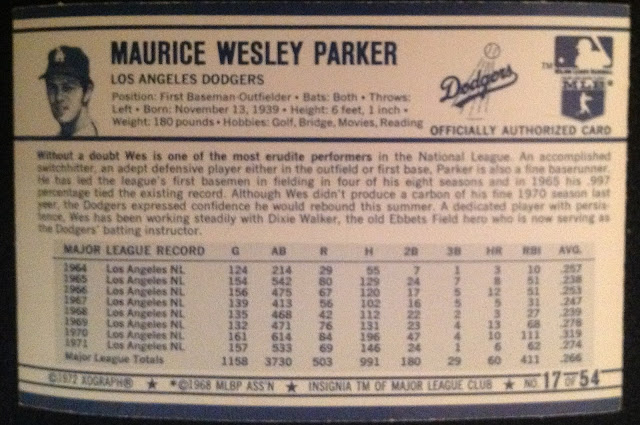I was able to get a bunch of them as a kid. When we went to card shows in the mid-1970s we never looked at any card that wasn't from the 1960s or older so I didn't pick them up there.
I haven't picked up 1972s at all so the sorting was easy and enjoyable. Even the variations are easy to figure out. 1971s were a different story.
I've been trying to get all of the 1971 variations without regard to condition. That is a good thing since I have very few 1971s that are in nice shape. I used to buy small lots of these to see if I could get some variations. Now that I have over 160 different ones the lots don't seem to help much. Is anyone else trying to get all of these variations in bad condition?
It looks like I need about 31 cards. I have some others in bad condition that I could trade. Any takers? I'd like to start by getting the more common players first since they should be easy to trade.
For those with Xograph on the back I need Clemente, Mays, F. Robinson, Merritt, Cater, McCovey, Blair, Stottlemyre, Kaline, C. May, Banks, Killbrew, Palmer, Torre, Rose, Monday.
For those with 1970 Xograph on the back I need Robertson (95 RBI), Merritt (249 BB), Cardenal (829 H), Dobson (625 SO), McCovey (1400 H), Blair (385 R), Stottlemyre (880 SO), Gaston (113 R), Dietz (199 RBI), C. May (273 H), Cuellar (990 SO), McNally (1067 SO), Palmer (567 SO), Northrup (2772 AB), Osteen (3.82 ERA in 1970).
Putting this in a post also helps me even if no one else is pursuing this. I can read this a lot better at a card show than whatever I scribble into a notebook.

















































